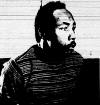Inside the Supreme Court
Petition to Decision
Papers of Supreme Court Justices on Civil Rights Cases
David Achtenberg
Professor & Law Foundation Scholar
UMKC School of Law
Kansas City, MO 64110-2499
816-235-2382
|
Petition to Decision Home Page |
| Archive |
| Timeline |
|
Researcher Information |
| Case Selection Page |
|
Petition to Decision Home Page |
| Archive |
| Timeline |
|
Researcher Information |
| Case Selection Page |
|
Petition to Decision Home Page |
| Archive |
| Timeline |
|
Researcher Information |
| Case Selection Page |
449 U.S. 90 (1980)
|
The Archive The Justice's Papers in Archive Order |
The Timeline Chronology with Links to Papers |
Researcher Information Materials for Further Research |
|
In Allen v. McCurry, the Supreme Court held that the doctrine of collateral estoppel applies in §1983 cases. As a result, plaintiffs in subsequent §1983 suits cannot relitigate issues that were resolved against them in previous state court proceedings. Allen was the first in a line of cases that delineated the scope of collateral estoppel (and the related doctrine of res judicata) under §1983. (For a simplified explanation of collateral estoppel and res judicata, click here.) American law generally recognizes a principle known as collateral estoppel or issue preclusion. Under that doctrine, a party who has litigated and lost a particular issue in one case is not permitted to relitigate the same issue in a subsequent case. One bite at the apple is usually seen as enough. (For a simplified explanation of collateral estoppel and res judicata, click here.) There are, of course, exceptions to collateral estoppel. For example, parties should not be precluded from relitigating an issue if they did not have a full and fair opportunity to litigate that issue in the first suit. Similarly, collateral estoppel may be inappropriate due to the legislature's allocation of particular jurisdiction to specific courts. Willie McCurry sued certain police officers in federal court under §1983, claiming that the officers had unconstitutionally seized certain evidence after the shootout and arrest described in the Background Story. However, McCurry had already litigated the same issue in his state court criminal trial by filing a motion to suppress the evidence. The state court had rejected his arguments and McCurry had been convicted. The defendants in McCurry's §1983 case argued that his federal court claims should be thrown out because they were barred by collateral estoppel: he had already had his bite at the apple. McCurry argued that collateral estoppel should not apply because Congress, by enacting §1983, had intended to insure that citizens would have at least one opportunity to have a federal trial court rule on their federal constitutional rights. He stressed the legislative history of the act, arguing that it showed Congressional mistrust of the state courts and its intention to provide a federal forum for vindication of federal rights. In an opinion by Justice Stewart, the Supreme Court rejected McCurry's arguments. The Court held that prior state court decisions should be given full collateral estoppel effect in subsequent §1983 cases so long as the state court had given the plaintiff a full and fair opportunity to be heard. |
Justice Blackmun's called
Allen v. McCurry a case
with “ugly facts.”
As apparent from the opinions, Willie
McCurry
To put it mildly, Willie McCurry
was an unsympathetic character.
At the time of the incidents that led him to
the Supreme Court, McCurry had more than forty arrests going back
twenty-three years and five convictions, including one conviction for
manslaughter.
On April 9, 1977, acting on a tip that
McCurry was selling heroin from his house, two undercover police
officers (accompanied by a concealed team of tactical officers) went to
McCurry’s house to make a buy.
Instead
of selling them heroin, McCurry shot and severely wounded the two
officers.
After an extended gun battle with the
tactical officers, McCurry surrendered.
He was convicted of possession of heroin and
two counts of assault with intent to kill, and was sentenced to two
consecutive thirty year terms for the assaults and a concurrent ten year
term for possession.
Effectively, this was a life sentence, and
he was not released until a few weeks before his death on September 16,
2001. At trial, Allen admitted driving
King throughout the robbery spree, but denied that he had any idea what
King was doing.
Allen also claimed that King used Allen’s
service revolver without his knowledge, but could not explain how that
could have happened.
Officer Allen was convicted of three counts
of armed robbery and one count of attempted robbery, and was sentenced
to twenty years imprisonment.
That conviction was overturned on appeal
because the trial judge had excluded certain evidence of Allen’s
reputation for veracity. The case was remanded for a new trial, and
I have not yet been able to trace what
happened on remand.
|
